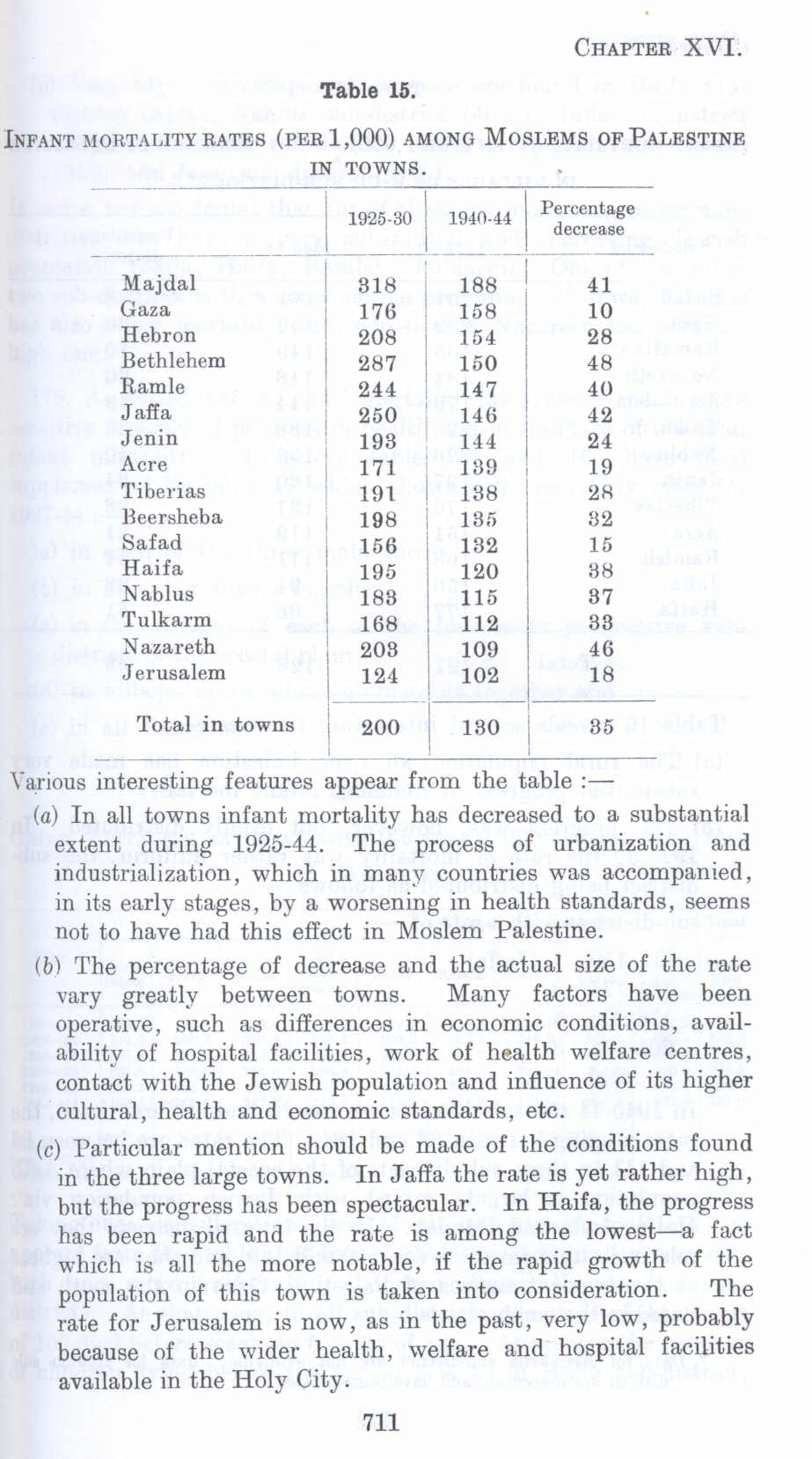| Prev | Next |  |
| Prev | Next |
| PalestineRemembered | About Us | Oral History | العربية | |
| Pictures | Zionist FAQs | Haavara | Maps | |
| Search |
| Camps |
| Districts |
| Acre |
| Baysan |
| Beersheba |
| Bethlehem |
| Gaza |
| Haifa |
| Hebron |
| Jaffa |
| Jericho |
| Jerusalem |
| Jinin |
| Nablus |
| Nazareth |
| Ramallah |
| al-Ramla |
| Safad |
| Tiberias |
| Tulkarm |
| Donate |
| Contact |
| Profile |
| Videos |
Table 15 showing Infant Mortality Rate (Per 1000) Among Mulsims of Palestine in Towns before 1948 (Nakba), British Mandate: A Survey of Palestine: Volume II - Page 711. Chapter XVI: Social Services : Section 5 The Standard of Living of Palestinian Arabs : |
Disclaimer
The above documents, article, interviews, movies, podcasts, or stories reflects solely the research and opinions of its authors. PalestineRemembered.com makes its best effort to validate its contents.


Post Your Comment
*It should be NOTED that your email address won't be shared, and all communications between members will be routed via the website's mail server.
Table 15.
INFANT MORTALITY RATES (PER l,000) AMONG MOSLEMS OF PALESTINE IN TOWNS.
Majdal Gaza Hebron Bethlehem Ram le Jaffa Jenin Acre Tiberias Beersheba Sa fad Haifa Nablus Tulkarm Nazareth Jerusalem
Total in towns
119-25-30 I
I '
318 176 208 287 244 250 193 171 191 198 156 195 183 168 203 124
1940_44 I Percentage
decrease
1881 4-1-
158 10
154 28
150 48
147 40
146 42
144 24
139 19
138 2R
135 32
132 15
120 38
115 37
112 33
109 46
102 18
200
130
35
Various interesting features appear from the table
(a) In all towns infant mortality has decreased to a substantial extent during 1925-44. The process of urbanization and industrialization, which in many countries was accompanied, in its early stages, by a worsening in health standards, seems not to have had this effect in Moslem Palestine.
(bl The percentage of decrease and the actual size of the rate vary greatly between towns. Many factors have been operative, such as differences in economic conditions, availability of hospital facilities, work of health welfare centres, contact with the Jewish population and influence of its higher cultural, health and economic standards, etc.
(c) Particular mention should be made of the conditions found in the three large towns. In Jaffa the rate is yet rather high, but the progress has been spectacular. In Haifa, the progress has been rapid and the rate is among the lowest-a fact which is all the more notable, if the rapid growth of the population of this town is taken into consideration. The rate for Jerusalem is now, as in the past, very low, probably because of the wider health, welfare and hospital facilities available in the Holy City.
711